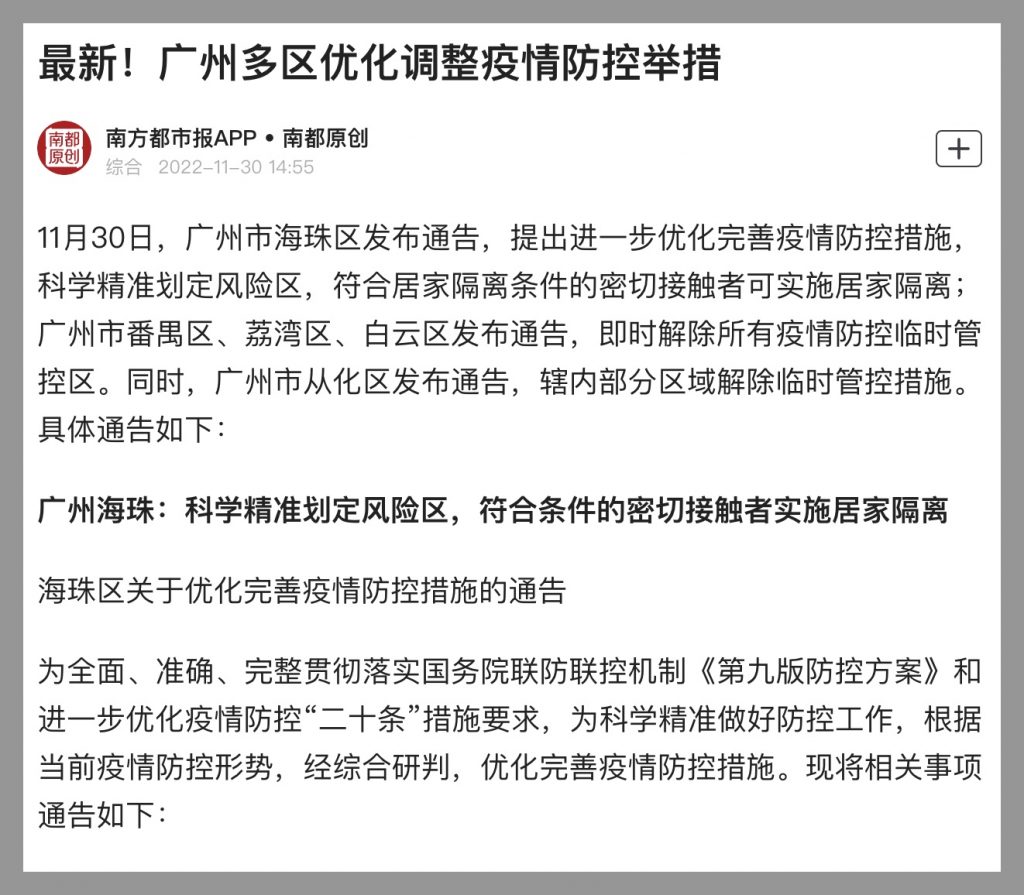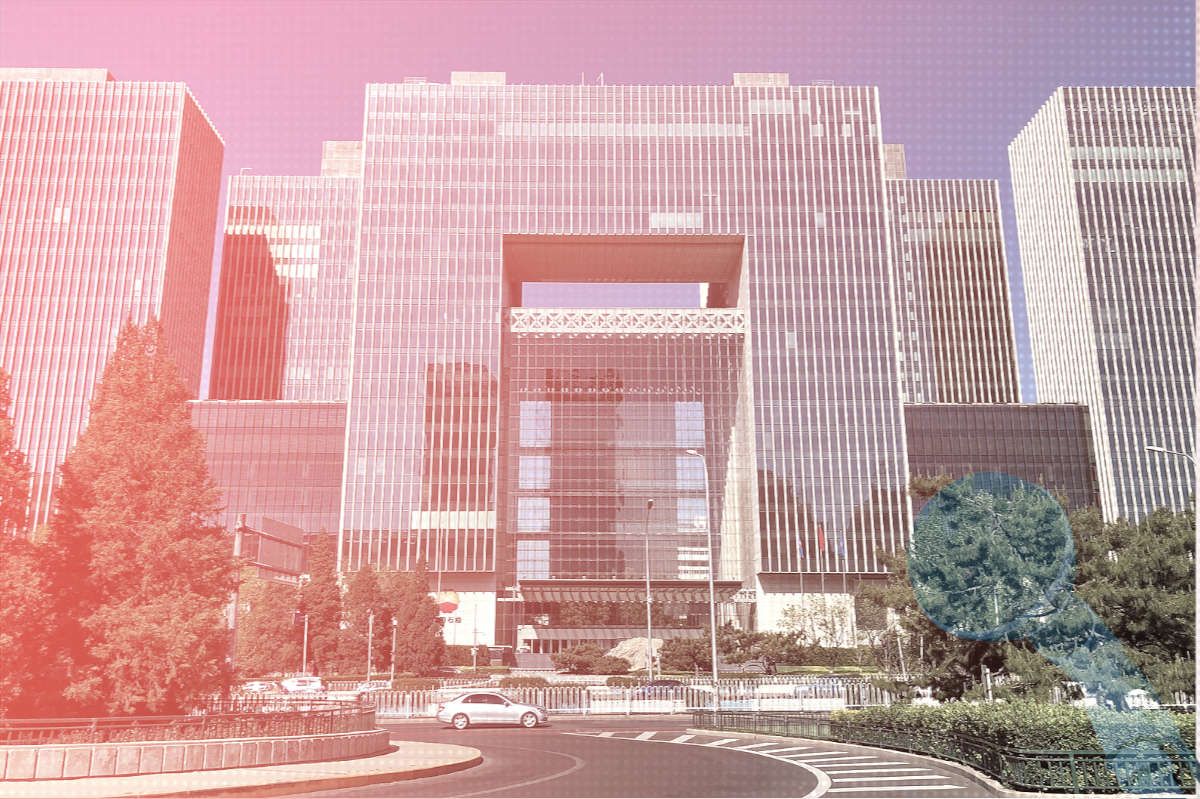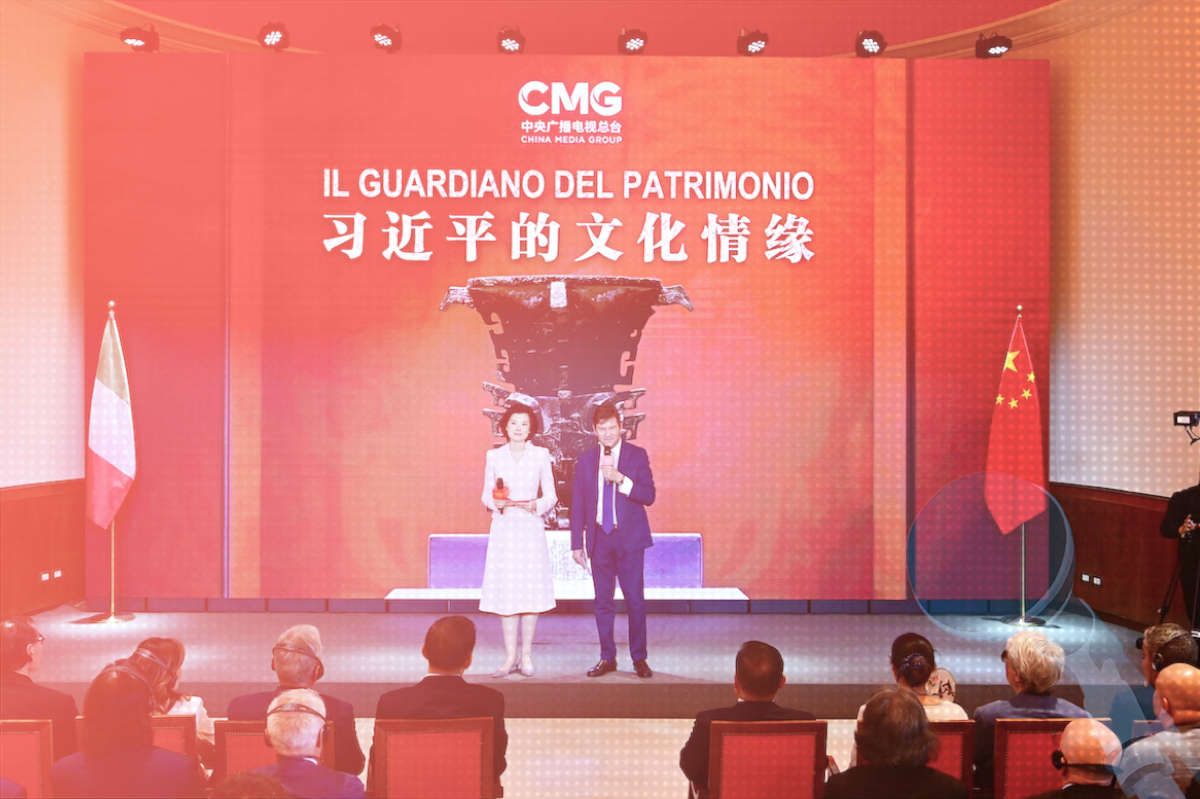China Newspeak
Optimization: Another Word for Messy

China’s sudden about-face on its rigid “zero Covid” policy in early December, which resulted in a tidal wave of infections across the country, was a public embarrassment for the Chinese Communist Party leadership. Accounts of hospitals and emergency rooms overwhelmed with severe cases, pharmacies cleaned out of basic fever-reducing medications like Ibuprofen, and bodies piling up at funeral homes pointed to a woeful lack of preparation — in spite of the coercive and all-consuming controls applied since the pandemic began.
The stark and often irrational contrasts in China’s Covid story prompted one internet user to muse wryly in a year-end recap:
Professional matters were handled with bullshit.
Bullshit matters were handled with professionalism.
Good things were done atrociously.
Atrocious things were done seamlessly.
How does an image-obsessed political system deal with the fallout after so many months of insisting that the costs of strict lockdown must be borne by all with a sense of sacrifice? Deny and reframe.
Over the past two months, the CCP leadership has sought to downplay drug shortages and other problems, insisting that all is going according to plan. State media have actively pushed the narrative that the sudden dismantling of rigid Covid control measures was simply a skillful re-tooling of existing policies. And one of the most important tools in this reframing process has been the phrase “optimize and adjust epidemic prevention and control measures” (优化调整疫情防控举措).
The notion that China “optimized” policies in December has now become an essential part of CCP propaganda, with the claim, supported by the selective use of foreign voices, that sudden changes in Covid policy were good not only for the health and livelihoods of Chinese citizens but for the development of the entire world.
“Optimizing” at the Local Level
When official media in Guangzhou announced in late November that strict Covid control policies had been dismantled in certain districts of the city, the headline read: “New! Many Districts in Guangzhou Optimize and Adjust Epidemic Prevention and Control Measures.”

By the middle of December, following the State Council’s release on December 7 of its “Notice on the Further Optimization of Measures for the Prevention and Control of Covid-19,” cities across China were “optimizing”: Shanghai, Ningbo, Dongguan. All were pushing, they said, to “optimize and adjust epidemic prevention and control measures.”
As a report on the Ningbo government website on December 8 read:
Since December 5, the city has optimized and adjusted its epidemic prevention and control measures. A few days ago, the reporter came to Jiangbei District primary medical institutions and PCR testing sites to witness changes in public traffic to these places. The reporter came to the city’s No. 9 Hospital and found that the health code scanning sign originally set at the entrance of the east gate had been removed, and both private cars and pedestrians could enter the hospital for medical treatment by simply showing the green code of health code to security personnel.
As reports abounded across Chinese social media and in international news coverage of a whole range of problems stemming from rising cases, including inadequate treatment facilities and drug shortages, the People’s Daily doubled down on the notion that this was an “optimization” resulting from careful and “scientific” consideration of the situation on the ground.
Foreign Friends on China’s Wisdom
On December 14, the newspaper ran an article called “’Scientific Assessments Made in Light of the Times and Situation’ (How the International Community sees China’s Optimization of Its Epidemic Prevention and Control Measures).” The article lined up quotes attributed to various foreign scholars, journalists, and ostensible civil society figures — all of them regular sources in state media coverage — to make the case that China’s recent actions on Covid were an extension through “optimization” of three years of supreme policy competence.
The article quoted Eduardo Regalado of the International Policy Research Center of Cuba (CIPI), a frequently cited foreign source that CMP covered in its August study called “China’s Global Soundbyte Factory,” as well as the Cambodian head of a Chinese Friendship Association whose claim to fame is having translated Xi Jinping’s Governance of China into the Khmer language.
On the last day of 2022, a commentary in the official People’s Daily by “Zhong Yin” (仲音) — a homophone for “important voice” (重要声音) that marks it as reflecting the prevailing leadership view — was called “Time and Situation, Steadily Optimizing and Adjusting Prevention and Control Policies” (因时因势,不断优化调整疫情防控政策). The commentary argued that China’s reclassification of Covid as a Class B infectious disease, subject to less stringent Class B measures (乙类乙管), has “brought greater benefits for global economic development.”
The notion that China “optimized” policies in December has now become an essential part of CCP propaganda.
The commentary stated in a blanket fashion that foreign chambers of commerce had welcomed the change in China’s policy. Broadly speaking, this was true. But confidence in an eventual return to normal business, including crucial in-person contacts, was not the ringing endorsement the newspaper claimed.
Last month, Jörg Wuttke, the president of the European Chamber, welcomed changes to Covid measures in China but noted clearly that “the government’s emphasis on testing over vaccination had led to a waste of resources and greatly impacted people’s daily lives,” and that his group had consistently promoted vaccination since the start of the pandemic — apparently to deaf ears.
The commentary drew ostensible foreign support from a few sources quoted in the December 14 piece, including “Isabel,” identified as a news editor at the Manila Bulletin in the Philippines. According to the People’s Daily, “Isabel” had said with “heartfelt feelings” that she “expressed her admiration for the results achieved by China’s insistence on research in the course of prevention and control.” Conveniently, the Manila-based editor’s comments were a perfect mirror of the CCP’s new talking points, as she said that China had provided a shining example “by closely tracking virus variants, strengthening effective research and development, and stockpiling medications, enhancing medical treatment capacity, and constantly optimizing measures to prevent and control the epidemic.”
This phrase essentially leveled three years of Covid history into a single affirmation of top-level decision-making as “scientific,” but also responsive. The new story to cap 2022 was that the leadership had always been willing to bend to the circumstances, despite Xi Jinping declaring with revolutionary fervor in May, following chaos in Shanghai, that “persistence [in applying zero Covid] is victory.”
“The wise change with the times,” the December 31 commentary said.
A Capstone for China’s Covid Legacy
In China, all policies are too big to fail. The CCP invests so much of its credibility and legitimacy in the idea that it governs effectively and “scientifically,” always for the benefit of the people, that the story of success is always written before the outcome. (For more on this, read CMP’s “Propaganda Soars Into Orbit,” a look at the messaging campaigns that began from bottom to top from the start of the CCP’s push to eradicate poverty.)
This is why the narrative of “optimization” and “adjustment” will continue in 2023 and beyond, as China’s leaders leverage their vast propaganda apparatus to set the capstone for the CCP’s Covid legacy.
On Monday this week, the People’s Daily again enlisted foreign voices to push the narrative that China’s “optimization” of its Covid policy has been for the benefit of the entire world. The article was carried on news sites across the country, including Netease, Yangcheng Evening News, and Shanghai’s Jiemian.
The newspaper quoted Pakistan’s Ambassador to China Moin ul Haque perfectly mirroring official CCP talking points as he said: “China’s adjustment of the classification of Covid as Class B is a scientific decision made in response to the situation.” As a major trading partner of more than 140 countries and regions, the ambassador reportedly said, China’s optimization and adjustment of its Covid policies “will further stabilize the global industry chain supply chain and inject strong momentum into the global economic recovery.”





















